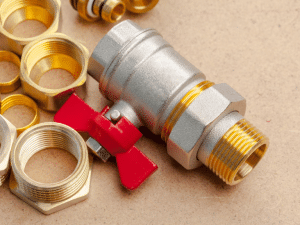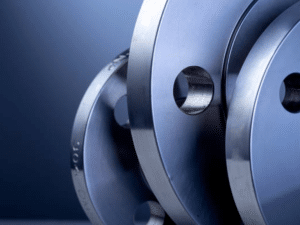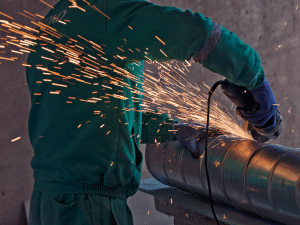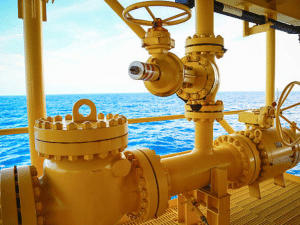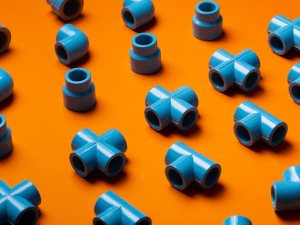Common Applications of Seamless Pipes in Various Industries
Seamless pipes are essential in every oil and gas power generation, building, and industrial production segment. The high industrial growth levels in the UAE require industries to find trusted suppliers who serve different industries. This blog post covers some of the standard applications of seamless pipes and how every industry can succeed in choosing reliable and leading seamless pipes suppliers based on performance and quality.
Advantages of Seamless Pipes for Industrial Use
The oil and gas industries favor seamless pipes because they offer high strength, dependable performance, and effectiveness. Seamless pipes deliver these major advantages to different industries.
High Strength and Durability
Seamless pipes experience improved strength because they do not contain any welded connections or structural weaknesses. These types of pipes work best in industries that need products to handle heavy pressure levels while adapting to temperature swings.
Better Corrosion Resistance
Corrosion-resistant pipes are essential in the oil and gas sector, chemical facilities, and water operations to withstand chemical exposure and harsh environmental conditions. Stainless or alloy steel seamless pipes are better than other tubes at protecting against corrosion and rust and working longer.
High Pressure and Temperature Handling
Seamless pipes perform well with intense heat and large pressure systems without breaking. Industries widely use seamless pipes in boiler systems, heat transfer equipment, and hydraulic systems. Their smooth interior and high strength ensure reliable performance under pressure and temperature.
Smooth Internal Surface for Better Flow
Seamless pipes provide a smooth inner surface that enhances performance by eliminating fusion joints. Their design creates fewer obstacles that aid faster gas and fluid movement. The inside of the pipe helps prevent buildup and mineral deposits. Seamless pipes provide effective flow support by delivering continuous operation in oil and gas lines while serving water and chemical businesses.
Leak-Proof and Reliable Performance
Seamless pipes remain secure since they have no welding points during production. They serve as reliable options that protect workers during hazardous tasks. Leading seamless pipe suppliers in the UAE provide quality piping systems to primary industries because their benefits guarantee perfect product performance.
Applications of Seamless Pipes in Different Industries
Seamless pipes are used in various industries for their high strength, pressure resistance, and durability. Below are some of the most common applications:
1. Oil and Gas Industry
The oil and gas industry consumes more seamless pipes than any other sector. These pipes are used for:
- Seamless oil rig systems manage pressurized drilling depths due to their perfect tubing.
- Steel pipes transfer raw oil, gas, and fuels because they maintain zero leaks and high operational strength.
- Seamless pipes work extensively inside refining equipment because they resist high heat and chemical exposure.
Oil and gas companies rely on seamless pipes suppliers because of the strong industry need for their specialized products.
2. Construction and Infrastructure Development
Seamless pipes are essential in building and infrastructure projects, providing strength, stability, and long-term durability. They are used for:
Structural frameworks – Seamless pipes provide sturdy support in bridges, high-rise buildings, and industrial facilities.
Water supply systems – These are used in underground pipelines to transport clean drinking water without leaks.
Sewer and drainage systems – Seamless pipes are used in wastewater treatment plants and networks.
3. Generation Industry
Seamless pipes are used in power plants for:
Boilers and heat exchangers – Seamless pipes withstand high temperatures and efficiently transfer heat in power generation systems.
Steam pipelines – Used in thermal and nuclear power plants to transport superheated steam safely.
Gas and hydroelectric power plants – Seamless pipes provide durability and efficiency in energy distribution networks.
4. Chemical and Petrochemical Industry
Seamless pipes are widely used in chemical plants because they can resist heat, pressure, and corrosive substances. These pipes are used in:
- Chemical processing plants and reactors
- Storage tanks and pressure vessels
- Pipelines for transporting acids, gases, and other chemicals
Industries prefer to source materials for chemical applications from reliable seamless pipe suppliers in the UAE who provide high-quality, corrosion-resistant pipes.
5. Automotive and Aerospace Industry
Seamless pipes are used in vehicle and aircraft manufacturing for:
Fuel injection systems – Providing high-precision fluid flow in modern engines.
Engine components – Used in exhaust systems, cooling systems, and high-pressure tubing.
Hydraulic and pneumatic systems – Essential for the safety and functionality of airplanes, trucks, and heavy machinery.
Precision, strength, and lightweight materials are essential for these industries, making seamless tube suppliers a key source of high-performance pipes.
How to Choose the Right Seamless Pipe for Your Industry
Several factors must be considered when deciding whether seamless pipes are needed for oil and gas, construction, power generation, or chemical processing.
Understanding the Importance of Material Selection
The material selected for seamless pipes directly impacts their strength and performance in demanding conditions. Each sector uses unique materials because of its required functions and operations. Carbon steel seamless pipes are essential for oil operations and natural gas distribution because they remain strong under heat. Stainless steel seamless pipes work best when the environment includes chemical products, water exposure, and maritime exposure.
Selecting the Right Pipe Size and Thickness
The pipe diameter and wall thickness control how much pressure and heat the pipe can handle and control fluid movement. Selecting the right pipe dimensions is necessary to avoid operational breakdowns in industrial setups. High-pressure gas transportation pipelines need thicker steel walls because the internal pressures create strong working forces. Heat transfer and fluid movement need a suitable center size and wall thickness to work correctly in boilers, heat exchangers, and hydraulic applications.
Ensuring Compliance with Industry Standards
Enhancing industrial operations requires total safety and quality as the main criteria for seamless pipe selection. For quality assurance, you must buy pipes from trusted seamless tube suppliers. Seamless pipes approved for industrial standards help them tolerate working needs in oil and gas, power generation, and building activities.
Choosing a Reliable Seamless Pipe Supplier
A reliable supplier helps deliver top-quality seamless pipes according to industry requirements. You should review how well your supplier has performed in past businesses and measure their item assortment with quality control steps. Seamless pipe suppliers provide tested steel products that show reliable resistance to corrosion while handling pressure and lasting over time. Choosing leading seamless pipe suppliers in the UAE ensures high-quality products, customized design support, and fast delivery for your specific needs.
Conclusion: The Growing Demand for Seamless Pipes Across Industries
Seamless pipes perform well in many industrial sectors because they withstand pressure and resist corrosion. The industrial sector depends on seamless pipes because these metal tubes help operations run safely at oil and gas facilities, power plants, construction sites, and manufacturing plants. Those seeking dependable products should partner with seasoned seamless pipe suppliers in the UAE to find the best materials. Buyers should rely on reliable seamless pipe suppliers for functional and tough piping solutions that secure operations.
FAQs
Q1: Why are seamless pipes preferred in high-pressure industries?
Seamless pipes offer strength to welded pipes, as they lack weak points created by welded seams. Pipes used in oil and gas facilities and power stations require stability at high operating pressures. The seamless metal construction enhances resistance to extreme working conditions, crafted from a single, continuous piece of metal.
Q2: What are the most common materials used for seamless pipes?
Seamless tube suppliers produce materials based on their requirements to make seamless pipes. The energy sector uses carbon steel to make oil and gas pipelines because it is dependable. Maritime and chemical businesses choose stainless steel because it stops corrosion from forming.
Q3: How do seamless pipes differ from welded pipes in industrial applications?
Seamless pipe designs are pressure-tolerant because they contain no welded sections. Welded pipes weaken at the points where the welding is loose. Oil and gas industries choose seamless pipes because their stronger style keeps operations steady and safe.
Q4: Are seamless pipes corrosion-resistant?
Seamless pipes show good resistance to corrosion depending on their material composition. Stainless steel and alloy steel pipes provide exceptional durability against corrosion and chemical wear, making them highly suitable for the marine and chemical sectors. Carbon steel pipes require specific elements to work well in corrosive settings.
Q5: What is the lifespan of seamless pipes in harsh environments?
The lifespan of seamless pipes depends on their material, usage, and environmental conditions. Harsh environments will not damage stainless steel and alloy steel pipes, which can serve for years. Regular inspections and proper material selection enhance pipe longevity and ensure safer operation.


